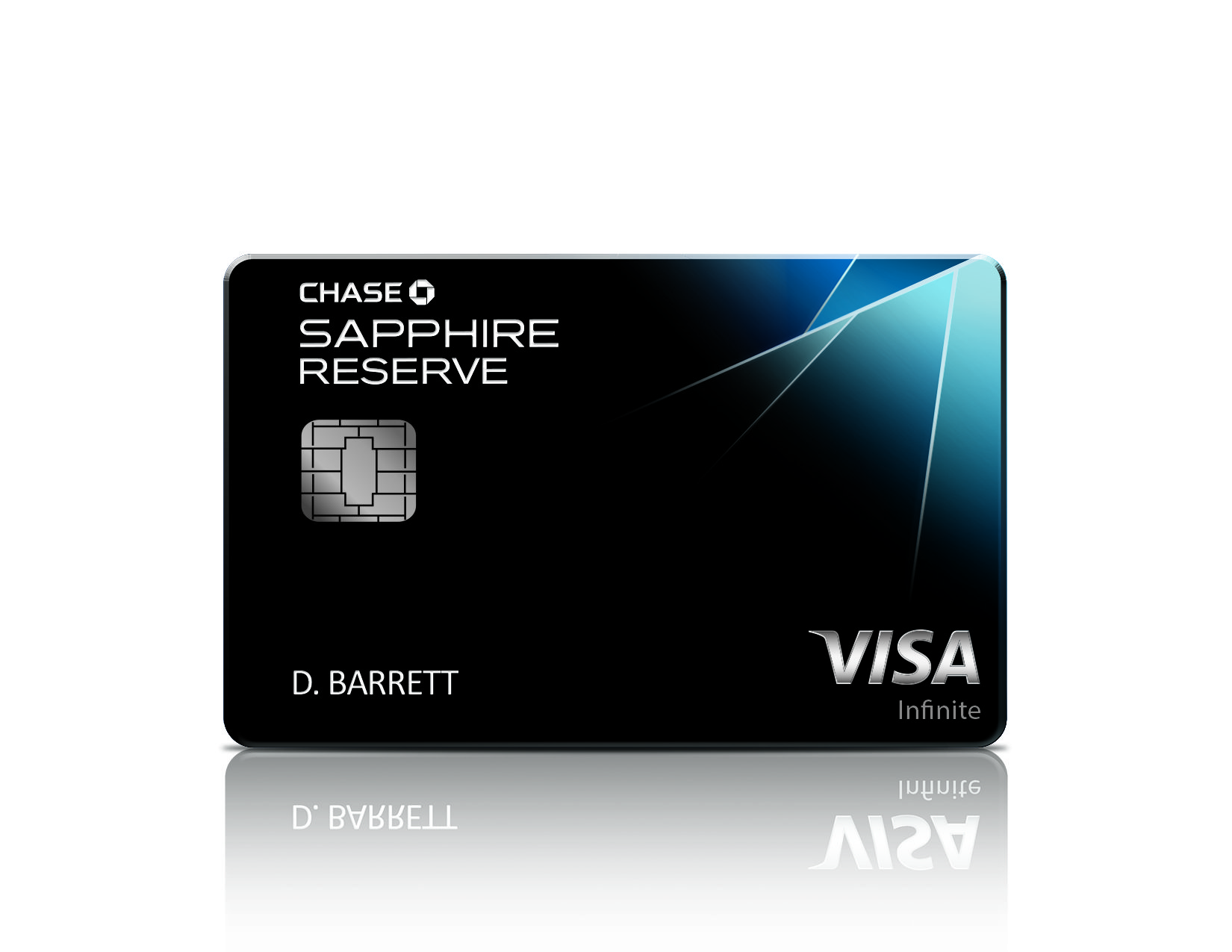Chase has some of the most valuable cards for travelers who want to earn points and miles. However, travelers must take heed in their credit card application rules. These rules are designed to prevent customers from taking advantage of them via churning and other “gaming” methods.
Earning a sign-up bonus on a card and then closing it within the first year is typical “churning” behavior. Such behaviors were easy to do years ago. However, banks have caught on and decided to create and implement rules and restrictions for prospective cardholders.
In honor of 5/24 Day, here are the Chase card application rules.
5/24 Rule
This is the most infamous and preventative of the Chase credit card application rules. It also serves as the inspiration behind this post. The 5/24 Rule states that you will get denied for a new Chase card if you have opened at least five bank cards within the last 24 months.
Applications for all Chase cards, personal and business, are affected by this rule. But 5/24 does not affect applications for non-Chase cards. This means that you can get cards from other banks if you are over 5/24. In fact, this is a common strategy among points and miles enthusiasts. It’s also why some people prefer American Express and their “ecosystem” over Chase and their “ecosystem”.
What Counts and What Does Not?
Because they appear on your credit report as new accounts, the following types of accounts will add to your 5/24 total:
- ALL personal credit cards (including Chase cards)
- ALL personal charge cards (like the American Express Gold Card)
- Business credit cards from Discover, Capital One, and TD Bank
- Store credit cards that can be used at places besides that store (like the Macy’s American Express Card)
- Authorized user cards from another person (because they appear on your credit report)
Exceptions to the 5/24 Rule are:
- Business credit and charge cards (because they will not appear on your personal credit report)
- Denied credit card applications (because no card was opened)
- Mortgages, student loans, and auto loans (because they are not credit cards)
Of course, once the accounts are on your report for 24 months, they will no longer count towards your 5/24 total. This includes closed accounts
Product Changes
Product changes do not affect your 5/24 total because the new card is the same account on your credit report. Your card number won’t change after a product conversion as you are not applying for a new card.
For example, if you decide to upgrade to a Chase Sapphire Preferred to the Sapphire Reserve, your card number will remain the same. In turn, your 5/24 total won’t be affected. This is especially true if your card is at least 24 months old as 5/24 would be irrelevant.
2/30 Rule
This rule is more straightforward, but still significant. The 2/30 Rule states that you can apply for up to two Chase cards within a 30-day period. Otherwise, you will be denied.
Here’s an example. Let’s say I applied for the World of Hyatt card and the British Airways card on April 1 and get approved for both. I would be denied if I decided to apply for the Chase Southwest Premier card on April 21.
Furthermore, applying for too many Chase cards at once signifies aggressive credit seeking behavior. Such behavior will scare Chase into thinking you’re a risky customer. The result is usually closure of all existing Chase cards even if you’re in good standing with all of them.
Sign-Up Bonus Restrictions
Most Chase cards are subject to a 24-month waiting period between earning sign-up bonuses. This means that you can’t earn a card’s sign-up bonus again for 24 months after receiving it the first time. However, the time period is extended to 48 months for the Sapphire cards and certain others.
For example, I received 15,000 Ultimate Rewards (UR) points for my Chase Freedom in April 2019. I will be eligible for another bonus in April 2021. Similarly, I received 50,000 UR points for my Chase Sapphire Preferred in May 2018. Therefore, I will be eligible for another bonus again in May 2022.
One Sapphire Rule
The One Sapphire Rule states that you can only have one Chase Sapphire card at any given period. This rule applies to the Reserve, Preferred, and the discontinued regular Sapphire card.
You can product convert between the different Sapphire cards after having one of them for at least 12 months. The reason for this is because there is a change in annual fees. This rule is not Chase specific, but its part of the CARD Act of 2009, which applies to all American credit cards.
One Southwest Rule
This is like the One Sapphire Rule, but it applies to Chase Southwest cards. The One Southwest Rule states that you are not eligible for a Southwest sign-up bonus if you currently have a Southwest Card.
Final Draw
Chase has some of the most valuable credit and charge cards for travelers. Take heed in their credit card application rules and they will treat you well.
Those who are starting out or who are new to points and miles should look at Chase first. I strongly suggest applying for Chase cards before those from other issuers to avoid the 5/24 Rule. You will also build a relationship with the bank as well as your credit history.
Those who are more established should apply for new Chase cards slowly and with a purpose. More established profiles might be above 5/24, limiting this group’s ability to apply. Make sure there is a reason for getting a new card besides the sign-up bonus. This way, you won’t prevent yourself from getting another Chase card in the future.
For everyone, make sure that you write down the date that you got approved for your new Chase card(s). This way you can know when you’re eligible for sign-up bonuses again. Furthermore, this tip also applies to those who want to get multiple Chase cards within a 30-day period. You can circumvent the 2/30 Rule by waiting a month or longer to apply for another card.













Above you say to note when you applied for a card (although if you are denied that data is likely irrelevant) and for Chase Sapphire, you said to note when you received the bonus. Likely, people can just review their credit report for the month of approval for cards and just need to track receipt of bonuses for Chase Sapphire and Southwest and Citi Prestige and Premier, correct?
Hi Kim,
Thanks for reading and asking this question. Reviewing your credit report and writing down key dates are great ways to keep track of approvals and sign-up bonuses. The credit report will have your card’s approval date. And for the bonuses, you can use a spreadsheet to keep track.
Best Regards,
Anthony
This is not correct. The waiting period period for some chase cards – eg sapphires – is 48 months, not 24
Hi Bob,
Thanks for reading and pointing this out. However, I mentioned the 48 month waiting period exception for certain cards in the “Sign-Up Bonus Restrictions” section.
Best Regards,
Anthony
If I have a Marriot card now, received the bonus 3 years ago, I can apply for another Marriott card to get the bonus tagain Do I close this card first and then reapply. And if so do I risk the points that are remaining from the first card thank you
Hi Eva,
Happy 5/24 Day and thanks for reading PYCR! If your Marriott card is from Chase, you can technically close it and get the bonus again since 24 months have passed. If its from Amex, then their Once Per Lifetime rule applies, meaning you can’t get the bonus again.
Keep the Marriott account open if you applied for another Chase card within the last 6 months. If this is the case and you decide to close, Chase might think you’re churning the Marriott card. Such thoughts might scare Chase and lead to them closing all of your accounts.
You can also upgrade your Marriott card to the newest version and possibly get an upgrade bonus. I would call Chase customer service and explore this option. This way, you will get more points and maintain your age of accounts.
Either way, you won’t lose the points in your Marriott account. But they do expire 24 months after earning them. So be sure to use them before they expire.
Hope this helps,
Anthony
Confused. You say “But 5/24 does not affect applications for non-Chase cards. ” Then you say in the next paragraph “ALL personal charge cards (like the American Express Gold Card)” do count. Which is it?
Hi BS,
Happy 5/24 Day and thanks for reading PYCR! Applications for all Chase cards are affected by 5/24. This means that if you apply for any Chase card, they will look at your 5/24 total to decide approval. If you apply for another issuer’s card, they will not look at your 5/24 total.
However, the types of accounts listed in the bullet points add to / count towards your 5/24 total. For example, if you apply for the Amex Gold card and get approved, one new account will be added to your 5/24 total.
Hope this clarifies things,
Anthony